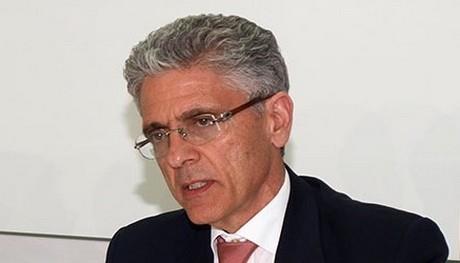Despite being scolded publicly by former minister Charles Mangion, Minister Evarist Bartolo yesterday returned to the attack on the MFSA head, Joe Bannister.·
Writing on his Facebook wall, Mr Bartolo said that “Joe Bannister is the chairman of an authority in Malta which has the role of regulating and supervising the financial industry. Forming part of the same industry through directorships of collective investment schemes registered in the Cayman is a serious conflict of interest.”
The attack follows another that took place during a parliamentary session last week, when he said that he has no faith in the MFSA Chairman. That time, while referring to the Panama scandal, Mr Bartolo had said: "Does it make sense that an MFSA Chairman is directly involved with a company in the Cayman Islands which is also considered as a tax haven? Isn't this causing a conflict of interest?"
Mr Bannister had denied the claims by Mr Bartolo, saying: “The issue was raised five years ago and the matter was closed. Both the then Prime Minister and the Leader of the Opposition know the facts.”
“I do not have a company in the Cayman and neither do I have any funds in the Cayman,” Mr Bannister said.

Labour MP Charles Mangion had stood up in Parliament to defend Prof. Bannister, but this has not placated the Education Minister, who on Sunday turned to the social media to continue his verbal attack on the MFSA chief.
Mr Bartolo added: “The IMF further emphasizes that financial supervisors should have a clear and unambiguous mandate, operational independence coupled with accountability, skilled staff, and a relationship with industry that avoids “regulatory capture.” Regulatory capture means a form of political corruption that occurs when a regulatory agency, created to act in the public interest, instead advances the commercial or special concerns of interest groups that dominate the industry or sector it is charged with regulating.
“The IMF explains operational independence. Supervisory agencies should be able to resist inappropriate political interference or inappropriate influence from the financial sector itself; this needs to be reflected in the processes for appointment and dismissal of senior staff, stable sources of agency funding , and adequate legal protection for staff. Provisions that require, for example, that key decisions on individual companies be referred to the government, should be avoided. Supervisory agencies should not manage or otherwise run the enterprises they supervise; the boards of supervisory agencies should not have directors who represent the industry.”
Mr Bartolo then concludes: “The international financial institutions are clear: You cannot be the chairman of a financial supervisor, such as the MFSA, and be a director of collective investment schemes in the Cayman at the same time. Chairman Bannister’s position is untenable.”
MFSA chaiman denies
I have no faith in MFSA chief - Bartolo